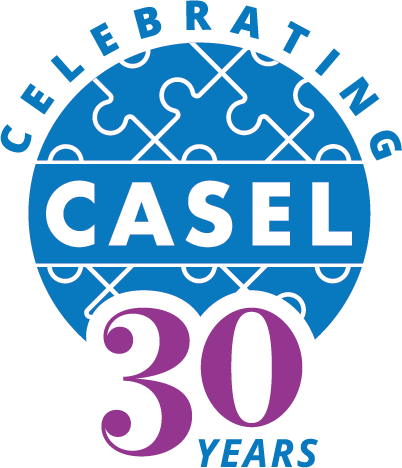Imagine a school community that fully supports the learning and development of all children so that they can thrive.
Most people agree that we want young people to be surrounded by trusting relationships, feel a sense of purpose and belonging, and learn and practice skills needed to work toward their goals and contribute to their communities.
That is why social and emotional learning (SEL) is important – because it helps create learning opportunities and environments that promote the healthy development of every student.
If we really want all students to leave school having developed certain academic, social, personal, and cultural capacities, we need to think really carefully about whether we as educators are creating the types of experiences that we know from research will help develop those capacities.
In what ways does SEL advance equity and excellence?
Back to topSEL can be a powerful lever for creating caring, just, inclusive, and healthy schools that support all young people in reaching their fullest potential. As our definition explains, SEL advances educational equity and excellence through:
- Authentic school-family-community partnerships where young people, families, educators and community partners work together to establish learning environments and experiences that best serve all students.
- Trusting and collaborative relationships where educators can attune to and appreciate students’ developmental needs and unique strengths, develop deeper awareness of students’ diverse cultures and backgrounds, and create classroom environments that are inclusive of all learners.
- Rigorous and meaningful curriculum and instruction that fully supports all young people in their academic, social, and emotional development including understanding their own emotions and strengths, empathizing with and appreciating the strengths of others, and working together to pursue their interests and achieve goals.
- Ongoing implementation evaluation that ensures all students have access to supportive learning environments and high-quality educational opportunities in order to achieve excellence in academic, social, and emotional outcomes.
By prioritizing SEL, educators, families, communities and students can work together to create learning environments and experiences that more fully nurture the development of all young people so that they can thrive.
Why is equity and excellence essential to CASEL’s work?
Back to topAt CASEL, we are driven by a vision of all children and adults as self-aware, caring and connected, responsible, engaged, and lifelong learners who work together to achieve their goals and create a more inclusive, just, and equitable world. The field of SEL was born out of a desire to ensure all young people have access to the relationships, environments, and learning experiences that promote healthy development.
To learn best, young people need to be surrounded by trusting relationships and environments where they feel motivated and engaged, emotionally and physically safe, and a sense of belonging among adults and peers. This requires making sure that educational policies treat students fairly and that all students have caring teachers who believe they can succeed. In order to fully support all students’ SEL, adults need to understand their own biases and expectations, develop awareness of students’ cultures and backgrounds, and acknowledge and challenge inequitable practices and policies that limit or harm the development of children.
At the core of CASEL’s work is creating bridges between schools, families, and communities to have important conversations and work together to advance SEL toward equity and excellence. While SEL alone will not solve deep-seated inequities, it can help communities begin to take steps toward solutions. For example, SEL can support young people and adults in reflecting on and expressing their perspectives, listening to and building connections with those who have different viewpoints and experiences, and working together toward personal and collective goals.
What are we exploring through our learning agenda?
Back to topOur commitment to equity, excellence, and evidence undergirds all aspects of our work across Research, Implementation, and Policy. Our definition and framework for SEL provide a foundation for all communities to use evidence-based SEL strategies to advance the goals of equity and excellence in ways that are most meaningful to their local context. We guide school, districts, and states in the systemic implementation of SEL, which both fosters and depends upon an equitable learning environment where all students and adults feel respected, valued and affirmed in their individual interests, talents, social identities, cultural values, and backgrounds.
As we’ve partnered with districts to advance SEL toward their priorities, we’ve also documented many of the specific strategies that education leaders are using to promote equity and excellence. These include communicating explicitly about SEL as a lever for equity and excellence, prioritizing adult learning and critical reflection, elevating students’ voice and agency, partnering with families on culturally responsive approaches to SEL, and using SEL data strategies to share power and build more equitable learning environments. Learn more about how districts are advancing SEL as a lever for equity and excellence. Download the report.
We also know that there is still much to learn about how SEL can advance equity and excellence. As part of our research agenda, we are focused on exploring how Transformative SEL can support equitable learning environments and related developmental outcomes for children, adolescents and adults.
Transformative SEL is a term that refers to applying the SEL framework toward the goals of transforming inequitable settings and systems, and promoting justice-oriented school and civic engagement. Through our long-term learning agenda and ongoing collaboration with practitioners, policymakers, and researchers, CASEL continues deepening what we know about the implementation, influences and impacts of high-quality Transformative SEL. This research work is ongoing, so we will continue sharing practical insights as we learn them and lifting up expert voices with the broader field. Learn more about Transformative SEL.

